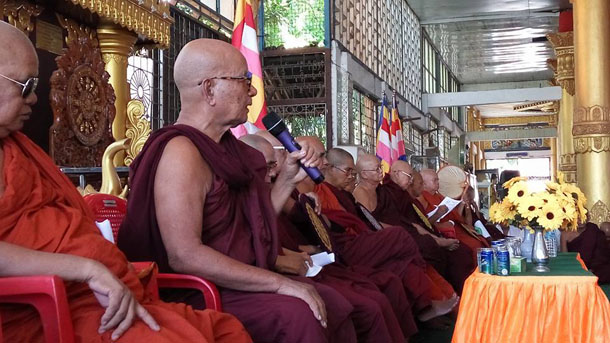RANGOON — Around 300 Arakanese nationalists, monks and civil society organizations in Sittwe, Arakan State, convened a meeting on Sunday in a monastery leading to a decision to launch a “poster campaign for every Arakanese House” throughout the state.
The campaign intends to air their dissatisfaction with the government’s use of the term “the Muslim community in Arakan State” to refer to the Rohingya minority.
Arakan National Party (ANP) Secretary Htun Aung Kyaw confirmed the meeting agenda, which, he said, focused on four things: sending a letter to the union government calling on it to refer to the Rohingya as “Bengali,” a widely-used term implies that they are illegal immigrants from Bangladesh; using “the Arakan Race” to refer to themselves instead of “Buddhists from Arakan State;” creating a poster campaign throughout the entire state, as well as organizing a massive protest.
Than Htun, a nationalist who is actively involved in anti-Rohingya campaigns, said the group gathered because they were upset with the government’s new terminology, which was used by Burma’s representative at the United Nations Human Rights Council in Geneva, Switzerland.
Than Htun urged the current government to use the previous government’s term “Bengali,” and said they were preparing to write a letter to State Counselor Aung San Suu Kyi and other lawmakers that will be sent within one week.
Of the poster campaign discussed at the meeting, he said, “I couldn’t say exactly when that will start. Maybe this week.”
According to another participant, the main outcome of the meeting was to write, “We don’t accept ‘Muslims from Arakan State’” on posters and put them up in front of every Buddhist house in Sittwe, the Arakan State capital. He told The Irrawaddy that a recently formed committee held a meeting on Monday and has decided to hold protests in several townships in Arakan State.
The Rohingya are a Muslim minority in Arakan State, many of whom have been forced out of their homes due to violence and have been living in camps for internally displaced persons since 2012.

















